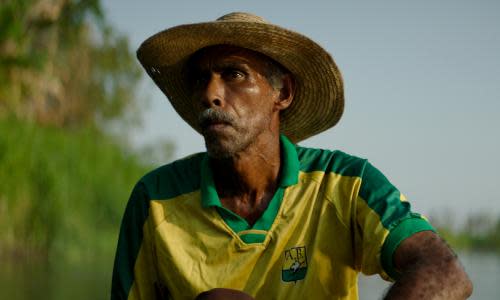Valley of Souls review – quietly devastating Colombian drama

“I thank those who have agreed to revisit these dark times,” reads the title card that closes this drama about a fisherman’s harrowing journey to retrieve the bodies of his two sons. Set in 2002, in the middle of the United Self-Defence Forces of Colombia’s (AUC’s) reign of terror, the film sees José (José Arley de Jesús Carvallido Lobo) drift downriver in his solitary canoe, scouring the debris that has washed up on the beach in search of clues. He knows it is forbidden to remove bodies from their unmarked grave – the otherwise gorgeous Magdalena river.
José’s personal quest mirrors the political project of the Belgian-Colombian writer and director Nicolás Rincón Gille; both seek to preserve those who have disappeared under the AUC’s regime. It’s a devastating film, but doesn’t revel in the story’s inherent grimness. In one terrifying, tragicomic scene, José is brought face to face with a paramilitary chief who is obsessed with the Tour de France. Happily, his knowledge of this shared cultural reference ends up saving his life. Gille, who has a background in documentary film-making, pays particular attention to the natural beauty of the Bolívar region, choosing to foreground José’s stoicism instead of the way his life has been ravaged by violence. Lobo, too, is radiant, a pillar of strength holding steady amid a storm of grief.

 Yahoo Finance
Yahoo Finance 